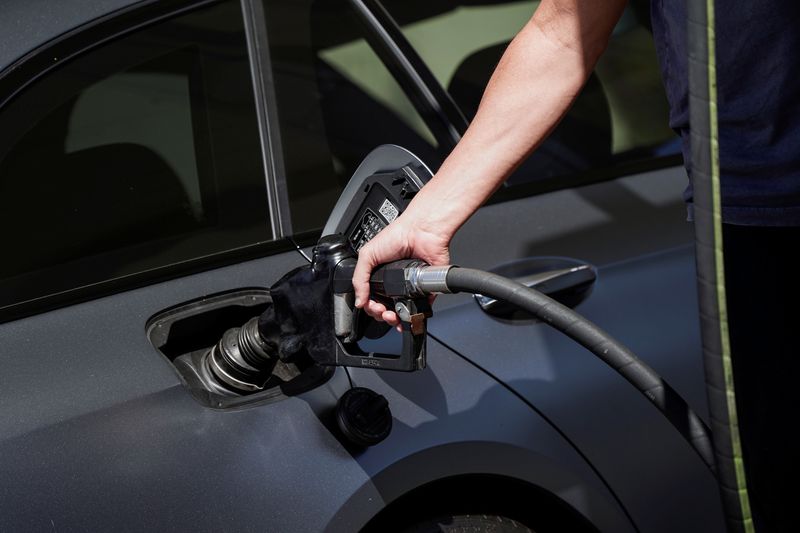(Reuters) -U.S. consumers' inflation expectations slid further in August as gasoline prices extended their steep decline from June's record high, a development likely to be welcomed by Federal Reserve policymakers weighing how big an interest rate hike to deliver next week.
Consumers in August saw inflation at 5.75% over the next 12 months, down from 6.2% in July and the lowest rate since October 2021, the New York Fed's monthly consumer expectations survey showed on Monday. They also foresaw price increases averaging 2.8% over the next three years - the lowest pace since late 2020 - after pegging inflation over that horizon at 3.2% in July.
Moreover, consumers last month saw price increases running at 2% over the next five years, matching the Fed's own targeted inflation level. That was down from 2.35% in July and 3% at the start of the year when the New York Fed first started asking about inflation expectations over that time frame.
Those outcomes may bring some relief to U.S. central bank officials who have been fretting that the highest inflation in 40 years might alter consumers' perceptions of how sticky the current price shocks may be, which would make policymakers' job of containing inflation all the more difficult.
The Federal Open Market Committee - the Fed's policy-setting arm - is expected at its Sept. 20-21 meeting to raise the central bank's benchmark overnight lending rate again from the current range of 2.25%-2.50%.
Futures contracts tied to the Fed policy rate this month barely budged after the release of the New York Fed survey, as traders continued to overwhelmingly price in a third consecutive 75-basis-point hike from the central bank next week.
A week before the Fed's June 14-15 policy meeting, elevated readings of consumer inflation expectations in the New York Fed's survey results contributed to a last-minute decision to ramp up the size of the rate hike. Up to that point, most forecasters had expected only a 50-basis-point increase.
The New York Fed's survey for August was released a day before the U.S. Labor Department was due to issue consumer price index data for that month. Economists polled by Reuters forecast the CPI would rise 8.1% in the 12 months through August. The CPI jumped 8.5% in the 12 months through July.
LABOR MARKET
The New York Fed's survey also brought some optimistic news for the labor market, which Fed officials are expecting to weaken somewhat as they raise interest rates to lower overall activity and demand.
Consumers responding to the New York Fed questionnaire in August saw a lower likelihood that they would lose their job in the next year than in July and a higher probability of finding a new job should they lose their current employment. That signals consumers may be buying into the Fed's so-called "soft landing" aspiration for the economy, in which its policy tightening delivers a relatively modest setback to employment but does not trigger the sharp rise in unemployment usually associated with a recession.

Moreover, the percentage of those seeing it likely that they would quit their current job dropped to the lowest since March 2021. That's important because Fed officials believe the high rate of churn in labor turnover is exacerbating an already-tight labor market that features two open jobs for every available unemployed person seeking work.
Consumers were also more optimistic about the outlook for their personal financial well-being, according to the survey.